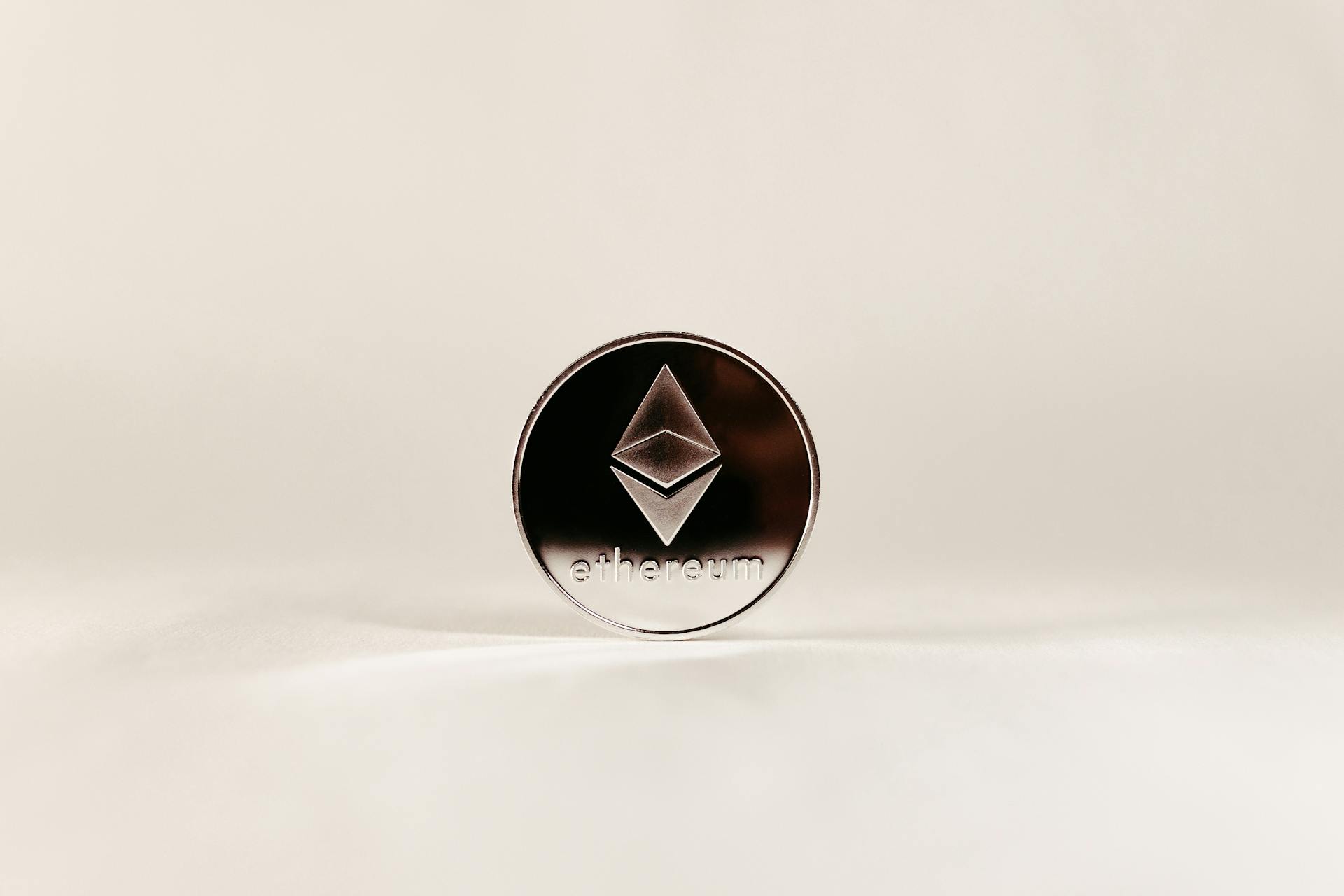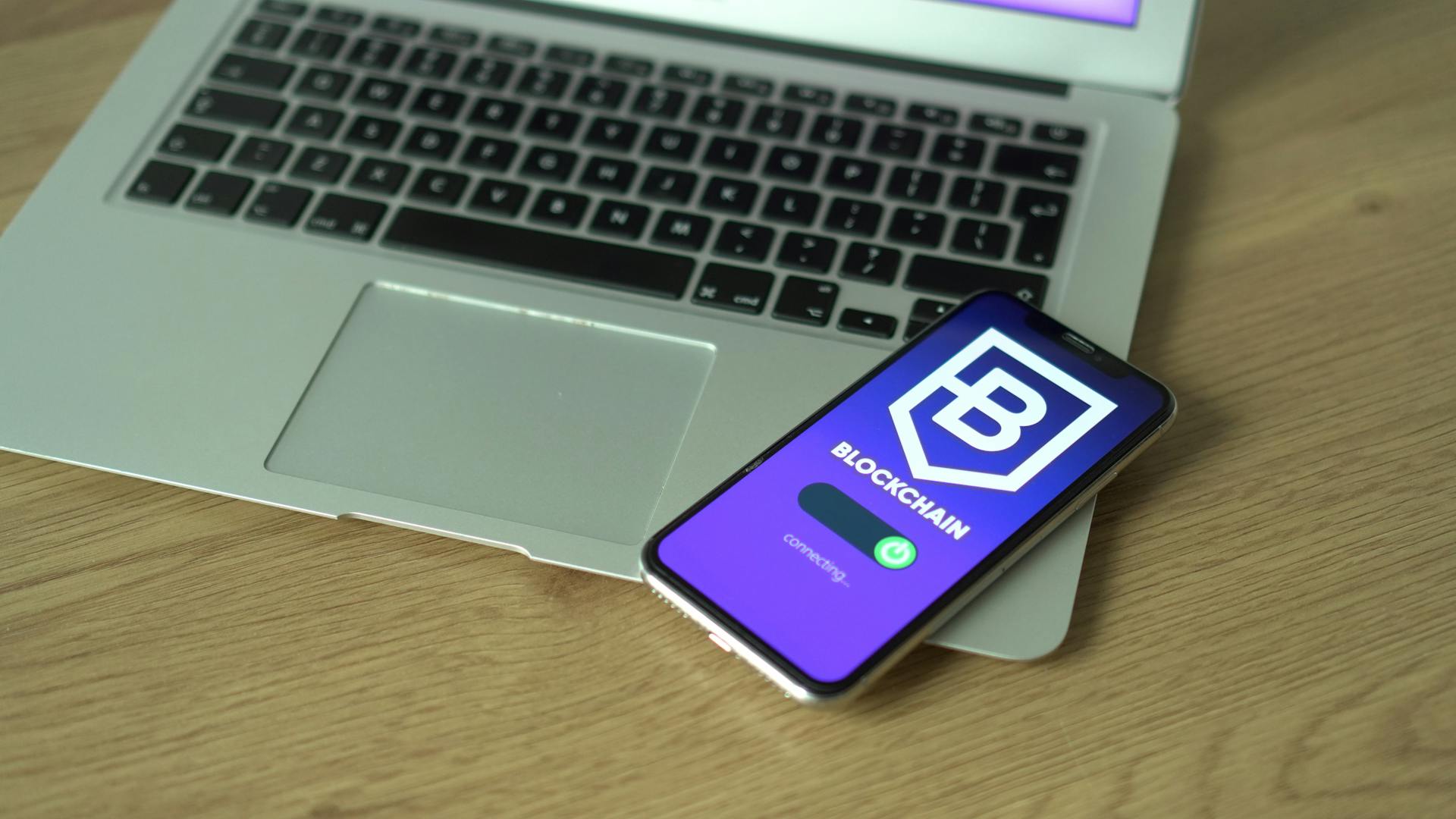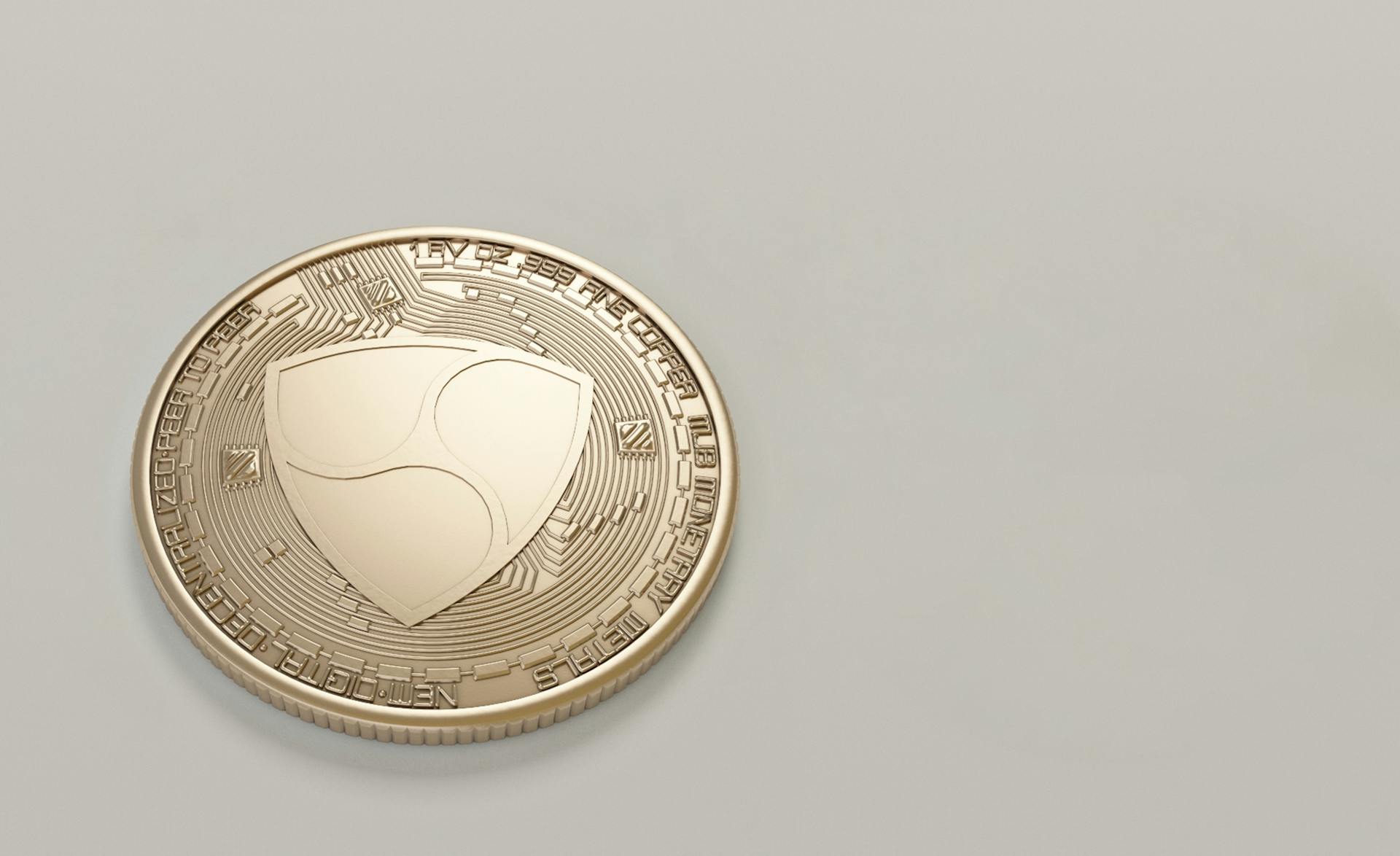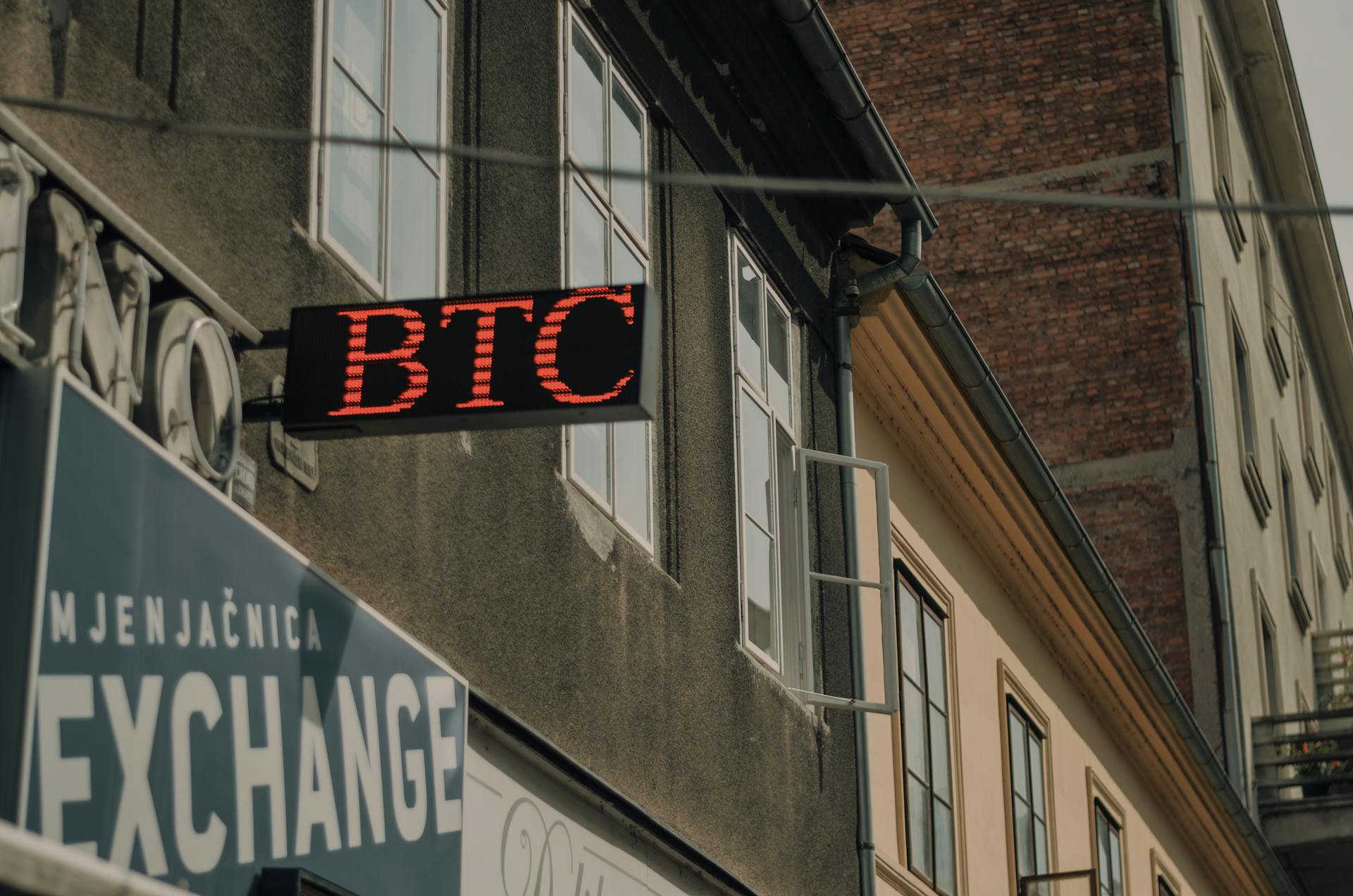
Uniswap Labs Unichain is a game-changer in the DeFi space, offering on-chain solutions that empower users to take control of their financial transactions.
By leveraging Unichain's innovative technology, users can access a decentralized and permissionless platform that enables them to trade, lend, and borrow assets without the need for intermediaries.
This means that users have full ownership and control over their assets, and can make decisions about their financial transactions without relying on third-party services.
Unichain's on-chain solutions also provide a high degree of security and transparency, allowing users to track their transactions and assets in real-time.
What Is Unichain?
Unichain is a new application-specific blockchain network developed by Uniswap, designed to revolutionize the way users experience decentralized finance (DeFi).
Unichain leverages the OP Stack technology from Optimism, allowing it to sit atop the Ethereum network as a layer-2 blockchain. This setup aims to deliver faster, cheaper transactions with enhanced liquidity and interoperability.
Unichain is expected to operate on a testnet initially, with plans to evolve into a key part of the broader Optimism Superchain.
Architecture and Features
Unichain's architecture is designed for flexibility and future upgrades, with a modular platform that can be easily extended with new functionalities.
Unichain is built on the OP Stack superchain, which allows for seamless liquidity flow between chains and provides users with fast, inexpensive, and broad access to liquidity.
The platform features two key innovations: verifiable block construction and the Unichain validation network. The verifiable block construction mechanism splits each block into four "Flashblocks" to achieve an effective block time of 200-250 milliseconds.
Unichain aims to significantly improve market efficiency by increasing arbitrage frequency and reducing the value loss from MEV while minimizing transaction delays. It also reduces user transaction costs by approximately 95% in the short term.
The Unichain validation network is a decentralized network of Unichain node operators designed to reduce certain key risks in the block sorting process. This achieves faster economic finality for quicker settlement of cross-chain transactions and supports potential future scaling.
Unichain supports seamless transactions across dozens of chains, and users can add the Unichain Sepolia testnet to their existing Ethereum wallets.
Here are some useful details for accessing the Unichain Sepolia testnet:
- Chain ID: 1301
- RPC URL: https://sepolia.unichain.org
- Block Explorer: https://sepolia.uniscan.xyz/
- Testnet ETH can be claimed from Alchemy, QuickNode, Superchain, or thirdweb.
Decentralization and Security
Unichain's decentralized validation network ensures that blocks are verified by nodes, adding an extra layer of finality and reducing the risks of conflicting or invalid blocks.
This network further decentralizes the system, ensuring it remains secure and reliable.
Unichain shifts execution from Ethereum's Layer 1 (L1) to an L2, reducing transaction costs by about 95% in the short term and aiming to further decrease them over time.
By offloading transaction execution to Unichain, users can expect significantly lower fees without sacrificing security or decentralization.
Unichain will establish a community validation network by 2025, allowing nodes to participate in block validation by staking UNI tokens.
This decentralized validation network will help prevent unauthorized block proposals, reducing the likelihood of transaction delays or financial risks to users.
Unichain's Trusted Execution Environment (TEE) ensures the integrity of transactions and prevents tampering, enhancing security while reducing MEV risks.
Benefits and Advantages
Decentralization with lower costs is a key benefit of Unichain, as it shifts execution from Ethereum's mainnet to a layer 2, reducing transaction costs by about 95% in the short term.
This drastic reduction in costs is achieved by leveraging Ethereum's ability to provide cheap data to layer 2s, while maintaining decentralization. By offloading transaction execution to Unichain, users can expect significantly lower fees without sacrificing security or decentralization.
Unichain's transaction speed is also a significant advantage, with a target of 250 milliseconds, compared to Ethereum's 12 seconds and most existing layer 2 solutions' two seconds. This drastic improvement in transaction speeds creates a more fluid trading experience.
By reducing block times, Unichain minimizes opportunities for maximal extractable value (MEV) exploitation, a practice where bots front-run transactions for profit.
DeFi Challenges
DeFi protocols on Ethereum still face significant challenges, including high transaction costs and slow speeds.
Despite the success of DeFi protocols like Uniswap, which has processed $2.4 trillion in volume over the last six years, Ethereum's limitations hinder widespread adoption.
Uniswap's $2.4 trillion in volume is a testament to the potential of DeFi, but it also highlights the need for improved infrastructure.
Unichain is designed to address these challenges while maintaining Ethereum's decentralized ethos.
Unichain's low-cost transactions are made possible by leveraging Ethereum's scaling roadmap, which includes providing cheap data to L2s.
This will lower transaction costs by ~95% compared to Ethereum L1 in the short term, and even more over time.
Unichain's fast transaction times will be achieved through one-second block times and 250ms "sub-blocks" that will make user experiences feel instant.
Faster blocks will also boost market efficiency and lower value lost to MEV.
Seamless multi-chain swapping is another challenge that Unichain aims to solve, enabling users to swap assets across different chains with ease.
Unichain's partnership with OP Labs will implement native interoperability, allowing for single-block, cross-chain message passing among Superchain L2s.
UNI Holders and Value
As UNI holders, you have a significant stake in the Uniswap Labs ecosystem, with over 100,000 unique addresses holding UNI tokens.
UNI holders have a say in the protocol's governance through voting on proposals, giving them a direct influence on the direction of Uniswap Labs.

The value of UNI tokens is tied to the overall performance of Uniswap Labs, with a strong correlation between the protocol's liquidity and token price.
In 2021, UNI's price surged to an all-time high of $44.94, driven by the increasing popularity of decentralized finance (DeFi) and Uniswap's growing market share.
The total value locked (TVL) in Uniswap Labs has consistently exceeded $10 billion, demonstrating the protocol's significant market presence and potential for UNI token holders.
Building
Building on Unichain is an exciting opportunity for developers to create decentralized applications and financial products. Unichain's modular design and commitment to decentralization make it an attractive platform for building innovative solutions.
The Unichain testnet is currently operational, offering developers a comprehensive toolkit to get started. This includes the Unichain Builder Toolkit, which provides all the necessary resources for developers to build on the platform.
Developers can deploy on the Unichain testnet to test and iterate on their dApps. The Uniswap Foundation is leading developer engagement efforts by providing grants and programming to support builders working on Unichain.

To get started, developers can bridge assets into the Unichain testnet and start swapping on the Uniswap Interface. They can also apply for grants through the Builder Open Call, which provides financial support for innovative projects on Unichain.
Here are the steps to get involved:
- Learn more and dive into developer docs on unichain.org
- Start deploying on Testnet
- Complete the Builder Open Call form to apply for developer grants from the Uniswap Foundation
- Bridge assets into Unichain testnet and swap on the Uniswap Interface
- Contribute to the repositories linked in the Unichain whitepaper
By contributing to Unichain's development, developers can help shape the future of the platform and its role in scaling Ethereum.
Assumptions and Empowerment
Assumptions underlying the appchain thesis is that moving to an appchain breaks composability, but we're already in a multi-chain world where most economic activity in crypto doesn't happen on a single chain.
We need to get better at trustless and trust-minimized bridging, just as we've needed to get better at writing secure contracts. Applications across multiple public, permissionless blockchains already have greater potential composability with each other than legacy financial rails or databases.
Appchains may not provide the same degree of atomic composability as DeFi, but as the ecosystem matures, we'll find advantages to UX and security in adopting designs that require more explicit decisions about composability.

The necessity for many applications to have more direct control over their costs and access to blockspace is another driver of an appchain-centric future. This is because there are physical limitations to the volume of transactions that can be processed on a network that values decentralization, and market pricing for blockspace is required.
UNI has indeed gained some empowerment and demand pressure with Unichain, particularly through its use as a staking token for validators in the UVN.
Assumptions Underlying the Appchain Thesis
Moving to an appchain can break composability, but we're already in a multi-chain world where most economic activity happens across multiple chains, not just one. This means we need to improve trustless and trust-minimized bridging.
The majority of economic activity in crypto is not happening on a single chain, so we need to adapt. Applications across different public, permissionless blockchains already have more potential composability with each other than with legacy financial rails or databases.
Appchains may not provide the same degree of atomic composability as we've grown used to in DeFi, but as the ecosystem matures, we'll find advantages in adopting designs that prioritize specific types of composability. This will require more explicit decisions about what composability to prioritize.
There are physical limitations to the volume of transactions that can be processed on any network that values decentralization. If the demand to write to a globally accessible and censorship-resistant database is virtually infinite, some form of market pricing for blockspace is required.
Has Uni Been Empowered?
UNI has indeed gained some empowerment with Unichain, thanks to its use as the staking token in the validator network.
To become a validator, node operators must stake UNI on the Ethereum mainnet, with the amount of staked tokens determining their influence and commitment to network maintenance.
The Unichain network takes a snapshot of the current staked balance at the start of each period, which serves as the basis for reward calculations.

Participants can increase a validator's staking weight through staking and voting, improving their chances of becoming an active validator.
Active validators run a dashboard Reth Unichain node online, proposing and validating blocks, and must sign the block hash and publish it to the UVN service smart contract as proof of their work's validity.
Validators who fail to publish valid proofs during the period will not receive rewards, and any unallocated rewards will be transferred to the next period.
Frequently Asked Questions
Who is the CEO of Uniswap Labs?
The CEO of Uniswap Labs is Hayden Adams. He has publicly refuted allegations of Uniswap demanding money from decentralized finance protocols for deployments.
What is Uniswap lab?
Uniswap Labs is the team behind the Uniswap Protocol, a decentralized trading and market making protocol on Ethereum. They focus on building products to support the Uniswap ecosystem, driving innovation in the crypto space.
Sources
- https://www.linkedin.com/pulse/uniswap-labs-launches-unichain-ethereum-l2-solution-akavatech-k2m6f
- https://cryptoticker.io/en/uniswap-launches-unichain-october-2024/
- https://medium.com/nascent-xyz/the-inevitability-of-unichain-bc600c92c5c4
- https://www.chaincatcher.com/en/article/2146723
- https://blog.uniswap.org/introducing-unichain
Featured Images: pexels.com

